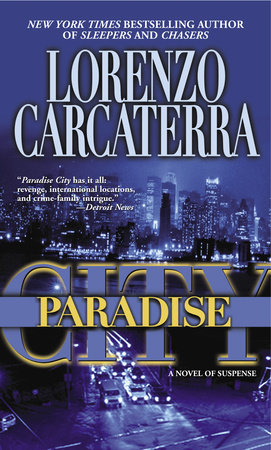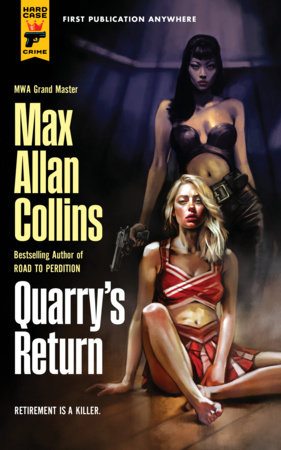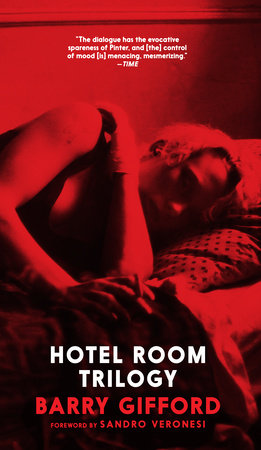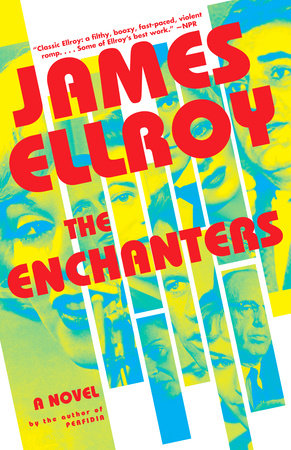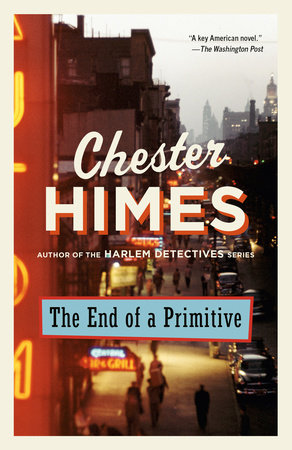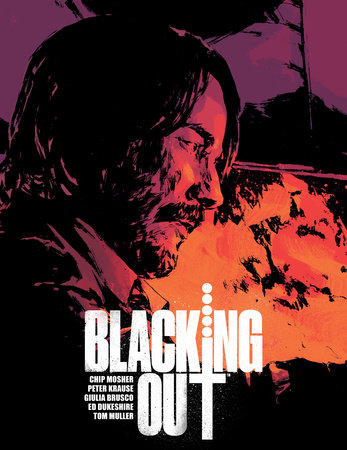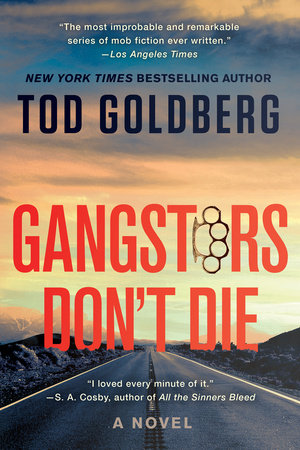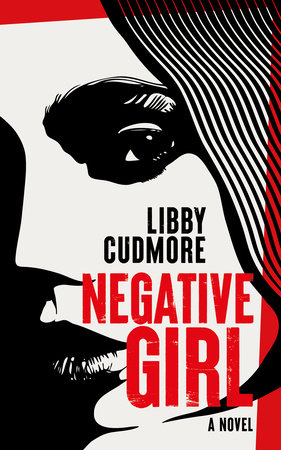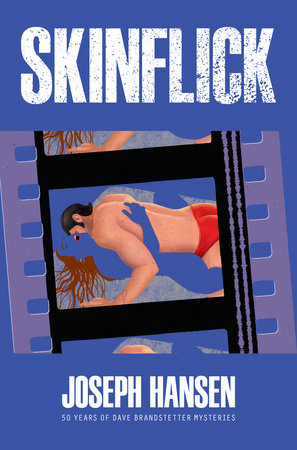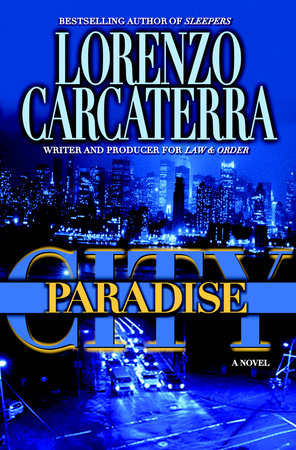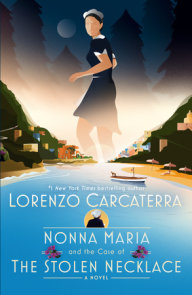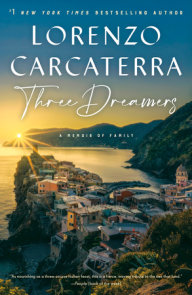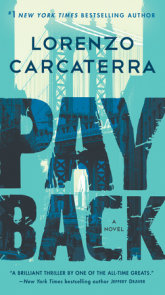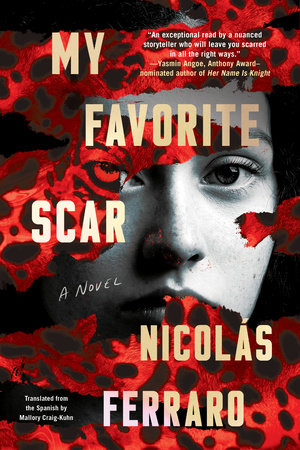Author Q&A
A TALK WITH LORENZO CARCATERRA
Your new novel, Paradise City, is set in the cities of Naples and New York. You were born and raised in New York, in the Hell’s Kitchen area, but is there also a personal connection for you to Naples?
My family is from the island of Ischia, eighteen miles off the coast of Naples. I first went there when I was fourteen and have been back pretty much every year since, including two weeks this summer. I have an apartment on the island and consider it my second home, filled as it is with many of my friends and relatives. I speak the Neapolitan dialect and learned to speak Italian before I spoke English. I also spent a great deal of time in Naples researching my previous novel, Street Boys. I love the people, the food, the music, the way they, as poor as many of them are, seem to enjoy the moments, both big and small, of their daily lives. It is a special city. On a more personal note, my mother lived on Ischia until her death this past March. She was very generous in sharing her memories of the city of Naples. She opened me up at an early age to the films of the great Neapolitan actors and directors–from Vittorio De Sica (my favorite director) to Anna Magnani (my favorite actress), to the comic genius of Toto and Eduardo De Filippo. She shared with me her happy memories as well as tragic ones–losing an infant son, a young brother, and a husband to the ravages of a world war she never expected to see. All this by the time she was twenty-four years old. That, combined with growing up in New York in a heavily populated Italian neighborhood whose people kept Italy as real and alive as they possibly could, helped make Naples as much a home to me as New York.
Where does the title come from?
Paradise City is the term many people in both Naples and the islands surrounding it use when talking about New York City. They still think of New York as a place where any dream can come true, any riches can be achieved, any feat accomplished. All of which is true and explains why so many southern Italians have made New York their home. I also thought it was a good title for a novel set in a violent world.
Can you tell us a bit more about the book?
I have long wanted to tell a story about a cop who is not a fish out of water, but rather is one comfortable on both ends of the ocean. My main character, Giancarlo Lo Manto, has the hard-edged street smarts of the best of the New York cops as well as the sense and savvy and charm of the best of the Neapolitan badges. I also wanted to deal with the Camorra, which is seldom touched upon in today’s crime novels. At the same time, I wanted to see if I could tell what is essentially an Italian crime story and set it on New York soil.
So the Camorra really exists?
Yes, it does. It is the Neapolitan branch of organized crime and is more powerful and more secretive than the Sicilian Mafia. This country uses the word Mafia to cover all branches of Italian organized crime, but there are really two ruling kings of crime. Even the TV series, The Sopranos, is about the Camorra, not the Mafia. The crime family in that show is from Naples, not Sicily. The Camorra is involved in every facet of our daily lives–from transportation to clothing to stocks and bonds to sanitation pick-ups. They are ruthless and deep-rooted in both countries.
And Lo Manto takes them on?
Lo Manto has been battling the Camorra for the seventeen years he has been a cop. He is forced to come back to New York because his niece has gone missing. He knows it is a ruse to snare him and bring him down, but he comes anyway, deciding it time to bring to an end to his fight with one branch of the Camorra, the Rossi crime family and its young don, Pete Rossi. I wanted Lo Manto to be a blended mix of Dirty Harry with a dash of Sherlock Holmes–in other words, a cop not afraid of the action, but also quick to use his wiles to resolve a dangerous situation. Lo Manto is partnered with Jennifer Fabini, an equally tough and dedicated NYPD detective. I wanted theses two to move from a resentment of being paired to a respect for one another’s talents to possibly a chance at falling in love. They are too much alike for it to work long term. And they are too much alike for them to stay apart for too long. There is also a fifteen-year-old street kid, Felipe Lopez, who joins the team. He is street-skilled and smart, the kind of kid Lo Manto would trust. As always, I try to populate the book with as many strong secondary characters as possible, both on the good side and the bad. In this one, there are many I like–from Blind Moe Ravini to DelGardo to Reno the Squid to old lady Assunta. It always makes writing a book fun if you can add these characters to the story, like adding spices to top off a nice fresh red sauce. Underlying it all are the themes I always seem to go back to in my books–various aspects of revenge, friendship, betrayal, and loyalty.
Are your characters based on real people or composites of people you know?
Lo Manto is named after a cousin of mine, a lawyer living in Florence. I’ve always liked the name, and I really am fond of him. He’s more a brother to me than a cousin. Plus, his father was one of the classiest men I ever met, so, with his permission, I gave my detective his name. There are a few composites of people I know or have known sprinkled throughout the book, but the characters are, for the most part, mine.
Has Lo Manto become tainted by his obsessive pursuit of the Camorra?
I don’t think anything can taint Lo Manto, especially not the Camorra. They killed his father. They forced his family to leave America. They have held his beloved city of Naples captive for centuries. He would do anything to destroy them. It is his one quest.
What about Jennifer Fabini? What’s her quest?
Jennifer is a woman living and working in a male world. The toughest male world there is–the police department. She is also shadowed by the legend of her father, Sal, one of the great New York City cops, and the death of her mother, the one crime she feels no cop worked hard enough to solve. It all combines to make her a first-rate detective, but leaves her personal life in a state of chaos.
Pete Rossi, the head of the Camorra, is a figure far removed from the stereotyped Don. Is he typical of organized crime today?
Pete Rossi is the model for the twenty-first century Camorra Don. He has many legitimate interests, has layers separating him from the crime empire he runs, is an on-the-surface top-tier citizen. He is well educated, donates to numerous charities, sits on many boards, runs a profitable company, sends his kids to the best schools. He is typical of what the Camorra looks for in a don. He is not typical of what the Mafia has become–the faces you see in the tabloids; killing one another over slights; doing fifty-year-prison sentences for drug dealing; turning information over to the Feds in return for a new name and a condo in Arizona. They are ancient history. If the Camorra has its way, Dons like Pete Rossi will be the future face of organized crime.
How extensive is your research in writing a novel like this, and what does it consist of?
I started by reading as many books on the Camorra as I could find. Then I made a two-week research trip to Naples. I also read as many mysteries and thrillers set in Italy as were available–Andrea Camillieri the best by far. The New York cop scene I’m pretty current on, especially after spending a full season working on Law & Order. Toss in the mix the many friends I have with police department and legal connections. They allow me to have any question I need answered with a quick phone call. They have been very kind over the years in allowing me to pick their brains for a few books and a number of scripts. I’ll also visit and talk with friends on the other side of the law, see what’s new and interesting in their world and see if it fits into my fictional one. I made Lo Manto’s old neighborhood the East Bronx, a place where I lived for about seven years, so I know the area well. At the mid-point of the novel, I head back again to Naples, even though the book is only partially set there. I need to stay within Lo Manto’s Neapolitan character, not wanting to lose any of the key elements of that side of his personality.
Have you ever felt personally endangered in the course of conducting your research?
No, I haven’t. But I’m only writing books and scripts. I do have contacts on the other side of the law, as I said, but I’m not building a Federal case against any of them. They have also grown to trust me–the ones here and in Italy. And I have never done nor will ever do anything to betray that trust.
How do you make the worlds of both the police and the criminals come alive on the page?
I guess it helps having known so many cops and criminals in my life. I grew up in a home that was filled with violence, the only son of a convicted murderer. Many of my father’s friends were con men and small-time thieves. I spent four years working on a CBS show, Top Cops, where I got to meet and spend time with cops from all walks and areas of the country. I often have dinner in my favorite restaurant–the company a mixed bag of writers, cops, actors, judges, lawyers, and criminals. All of them have one thing in common–they are terrific storytellers. Most of the time, all I have to do is sit back, enjoy my meal, and listen.
Do you prefer to write fiction or non-fiction?
I love writing fiction. There is so much more freedom in the work. You can create your own world and still keep it as real as possible. You can have your characters say what you want them to say, not what they really said, and you can take your story anywhere it leads you. It is a roller-coaster ride. I might go back to non-fiction at some point, for the discipline and the structure and if the story is there. But my first love is fiction.
You also write for television and the movies, and work as a producer as well. How do you balance so many demanding roles?
I’ve always written scripts while I worked on the books, which probably explains why I’ve only published six in eleven years. My first two books–A Safe Place and Sleepers–were written while I worked on Top Cops as well as a number of reality-based pilots. I wrote two feature scripts and two pilots while I worked on Apaches and wrote another pilot while I worked on Gangster. With Street Boys, I worked on the novel and the screen adaptation of the novel with director Barry Levinson almost at the same time. And with Paradise City, I spent a season as a writer/producer on Law & Order. It keeps me fresh, bouncing from one story to the other and from one form to another. I never allow myself a chance to get bored. Once you’re tired of the isolated work of writing a novel, you switch to the action and collaborative work of writing and producing a script. When you tire of that, it’s back to the novel. Also, I have insomnia–and that helps a lot.
What’s it like to work on Law & Order? What is your favorite of the episodes you’ve worked on?
I will always be grateful to Michael S. Chernuchin and Dick Wolf for taking a chance and bringing me on board. The show has been on so long that it’s more like being taken in by a large family. And you learn a great deal about writing–the pace and rhythm and sounds of your words–working with Jerry Orbach, Jesse L. Martin, and S. Epatha Merkerson. They take whatever you write and make it better. It was an honor working and being in their company on a daily basis. My favorite episode of the ones so far has been “Couples” from season thirteen–four murders in forty-four minutes and all solved. Not too shabby. In addition to the writing, you are involved in all aspects of your episode–from casting to read-throughs to on-the-set revisions (my favorite part). You learn how to put a show together in the company of the best crew in the city. You can’t buy that kind of an experience.
When you have an idea for a story, how do you decide the best way to tell it: as a novel, a movie, or a TV episode?
It varies. Some ideas actually start out as a possible script in my mind–Street Boys, for example. I first thought of that as a script back in 1989. Then, over time, it evolved into a bigger scope and took on the dimensions needed for a novel. More often than not, the story decides the route. If the idea is a smaller one, can be kept tight and deals with one central issue, then you try and shape it for a TV episode. If there is more to it than that, you play around and decide which form serves the story the best and move on from there. The story dictates the form.
With so much of your work involving TV and film, why do you stay in New York?
Most of my work has been there. Law & Order is filmed in New York (I spent only one week all season in L.A.). I have worked out there in the past–for about three months once on a WB pilot–but normally I go there, make a deal, and then come home and write. But if future work brings me out there more often, I’m open to being one of those bi-coastal writers. At least for a while.
As a native New Yorker, how have you seen the city change? Are you happy with these changes?
I loved growing up in the city and thought it was a great place to be a kid during my years there. Now, while I still keep a Manhattan apartment, I spend very little of my time there. I love the theater, restaurants, museums, the action, the street vibes. But then, at a certain point, I need to get away, be at a place that’s quieter, has some space, some water to swim in, some trees to sit under. As a writer, you make use of those changes. I don’t see them all being for the better, and I use that in my work. The neighborhoods that no longer exist, the block housing that replaced the tenements I grew up in, the graffiti that is now considered art instead of vandalism, the loss of the working-class enclaves that were a second home to me: all of that saddens me. And what has replaced it frightens me.
Have the movie rights to Paradise City been sold?
The book is being sent out now for option. We’re taking our time with this one, since the character will be returning and you have to be really careful how you deal with such a situation on a Hollywood deal.
What about your other books?
All my books except for A Safe Place (which I have taken off the market) are in various stages of development. Apaches for producer Jerry Bruckheimer seems the one furthest along and should be moving forward sometime next year. Street Boys was bought outright by Warner Bros. for Barry Levinson. Gangster is being developed as a feature film by Revolution Studios. I’m doing the script on that one. Sleepers, of course, was made . . . and is still taking in money, bless its heart.
What other projects are you most excited about now?
I’ve started a new novel–The Chaser, which brings back Lo Manto and some of the other characters from Paradise City. I’m very excited about that. The plot is a good one, I think, and will take Lo Manto into new and even more dangerous terrain, once again forcing him back to New York and still battling the Camorra with another band of thugs tossed on top. I recently made a deal to adapt my novel Gangster as a feature film for Joe Roth and Revolution Studios and that’s going to be a lot of work and a lot of fun. I might do a pilot script and maybe a Law & Order script for the new season, probably after the book tour. I’ve been asked to work on a graphic novel. I wrote and sold my first short story–“A Thousand Miles from Nowhere”–which will be in a collection coming out in January called Dangerous Women. To be in the same collection as Elmore Leonard is like hitting the Pick Five [lottery]. I would have paid them to be in it. I’m writing a cover story for The National Geographic Traveler magazine on Venice that will be out next summer. I also want to do more short stories, a few more scripts, a bunch more novels, and have an idea for a non-fiction book I think both my agent and publisher will love. Just enough work to keep me clear of trouble.
